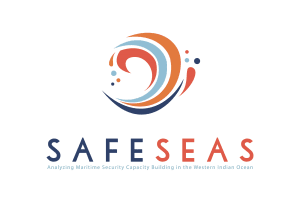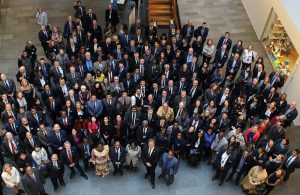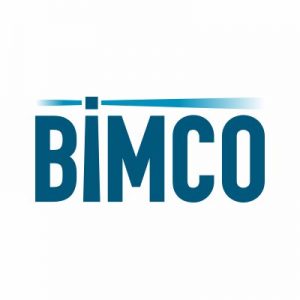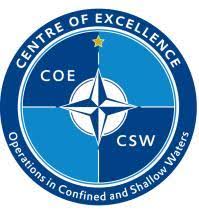In the summer this year I have joined the University of Copenhagen as a professor of international relations. As it is tradition in Denmark, I will deliver an inaugural lecture on the 30.11. In the lecture titled “Knowing the Sea. A Praxiography of Ocean Governance”, I revisit some of my past work on international practices and epistemic infrastructures to ask how we can make sense of contemporary ocean governance. Reviewing the past epistemic infrastructure of the oceans, and how concepts such as maritime security and the blue economy stand for a reproblematisation of ocean space, I discuss experiments in knowing and governing the oceans differently. I look at the spread of Maritime Domain Awareness as well experimentalist governing settings, such as UN Oceans, the Djibouti Code of Conduct, or the Contact Group on Piracy off the Coast of Somalia.
Author Archives: admin
New research grant for project on transnational organised crime at sea
 As a follow-up to our SafeSeas project running from 2016 to March 2018 Prof. Tim Edmunds and me have received new funding from the Economic and Social Research Council (ESRC) of the United Kingdom. The project will receive funding from the ESRC Partnership for Conflict, Crime and Security Research (PaCCS). The funding is for the new SafeSeas project titled “Transnational organised crime at sea: New evidence for better responses” (TOCAS).
As a follow-up to our SafeSeas project running from 2016 to March 2018 Prof. Tim Edmunds and me have received new funding from the Economic and Social Research Council (ESRC) of the United Kingdom. The project will receive funding from the ESRC Partnership for Conflict, Crime and Security Research (PaCCS). The funding is for the new SafeSeas project titled “Transnational organised crime at sea: New evidence for better responses” (TOCAS).
The TOCAS project examines maritime crime in the Indo-Pacific region. Case studies of the Western Indian Ocean, South East Asia and South Pacific sub-regions explore types of crime at sea, their interconnections and responses. TOCAS brings together for the first time ever existing research on maritime crime from different disciplinary backgrounds. The first objective is to to develop an evidence base for policy making. TOCAS compares across sub-regions how international actors are working together. The second objective is to develop guidelines and promising practices for how to tackle maritime crime.
Read the full press declaration of the ESRC here. For further information on the TOCAS project visit the SafeSeas website.
Fish Crime symposium in Copenhagen
 Fish Crime is the annual meeting of high level representatives and law enforcement agencies to discuss responses to fishery crimes and Illegeal, Unregulated and Underreported (IUU) fishing activities. The 4th meeting takes place in Copenhagen from 15th to 16th of October. Like last year I was participating as an observer. I was also chairing an off-side event organised by the UN Office on Drugs and Crime’s Global Maritime Crime Programme, which investigated challenges and opportunities of maritime domain awareness in the South Pacific.
Fish Crime is the annual meeting of high level representatives and law enforcement agencies to discuss responses to fishery crimes and Illegeal, Unregulated and Underreported (IUU) fishing activities. The 4th meeting takes place in Copenhagen from 15th to 16th of October. Like last year I was participating as an observer. I was also chairing an off-side event organised by the UN Office on Drugs and Crime’s Global Maritime Crime Programme, which investigated challenges and opportunities of maritime domain awareness in the South Pacific.
Maritime Security Seminar of BIMCO
 The Baltic and International Maritime Council (BIMCO) based in Denmark just outside of Copenhagen is holding its regular maritime security seminar on the 8th and 9th of October. BIMCO is one the largest of the international shipping associations representing shipowners. At the conference about 80 participants will discuss current challenges for transport security and safety at sea. At the conference, I will chair the opening panel which includes presentations from the Danish Navy, MSCHoA and Risk Intelligence concerning the overall strategic situation at sea.
The Baltic and International Maritime Council (BIMCO) based in Denmark just outside of Copenhagen is holding its regular maritime security seminar on the 8th and 9th of October. BIMCO is one the largest of the international shipping associations representing shipowners. At the conference about 80 participants will discuss current challenges for transport security and safety at sea. At the conference, I will chair the opening panel which includes presentations from the Danish Navy, MSCHoA and Risk Intelligence concerning the overall strategic situation at sea.
NATO operational maritime lawyers meeting in Copenhagen
 The 6th annual legal conference of the NATO Centre of Excellence on Operations in Confined and Shallow Waters (COE CSW) legal conference took place in Copenhagen, Denmark from the 25 to 27th of September. More than 130 naval officers, attorneys, and professors from 30 countries across the globe discussed contemporary maritime issues including cyber threats, self-defense, ocean conservation and marine pollution, and regional security challenges. I had the pleasure to participate in the events.
The 6th annual legal conference of the NATO Centre of Excellence on Operations in Confined and Shallow Waters (COE CSW) legal conference took place in Copenhagen, Denmark from the 25 to 27th of September. More than 130 naval officers, attorneys, and professors from 30 countries across the globe discussed contemporary maritime issues including cyber threats, self-defense, ocean conservation and marine pollution, and regional security challenges. I had the pleasure to participate in the events.
TRAMEREN conference in Copenhagen
What are the main challenges for ocean governance, international law and maritime transport? What is the role of the maritime in addressing climate change and achieving sustainable development. These are some of the core questions addressed by the TRAMEREN conference held in Copenhagen from 17.-18.9. I am attending as an observer.
Annual Conference of the European International Studies Association
 From the 12th to the 15th of September the European International Studies Association (EISA) held its annual meeting in Prague. At the conference I presented a series of work in progress, including thoughts on post-critical expertise and the relation of experimentation and problematisation, a new project on Making Maritime Security Strategy (MAMAS). I also attended a rountable on the English School and the recently published SAGE Handbook of the History, Philosophy and Sociology of International Relations.
From the 12th to the 15th of September the European International Studies Association (EISA) held its annual meeting in Prague. At the conference I presented a series of work in progress, including thoughts on post-critical expertise and the relation of experimentation and problematisation, a new project on Making Maritime Security Strategy (MAMAS). I also attended a rountable on the English School and the recently published SAGE Handbook of the History, Philosophy and Sociology of International Relations.
Term starts at University of Copenhagen
This week the term starts at my new university. For the next 14 weeks I will be teaching two courses at masters level: 1) a core module introducing the discipline of International Relations and its core concepts and methods, and 2) a module titled Knowledge Production and Evaluation, which introduces students of the Security Risk Management programme to core ways of how to evaluate competing knowledge claims.
Contact Group on Maritime Crime in the Sulu and Celebes Sea
From the 27th to the 28th of August, the inaugural meeting of the Contact Group on Maritime Crime in the Sulu and Celebes see will be held in Manila. The goal of the meeting under the theme “Mapping and Responding to Maritime Crime” is to draw on the sucess of other contact groups such as the CGPCS in order to improve the coordination in tackling maritime crime and building capacity. The meeting is organised by the UNODC’s Global Maritime Crime Programme regional office in Bangkok. I’ll be attending the meeting and also give a talk on the lessons from the Horn of Africa.